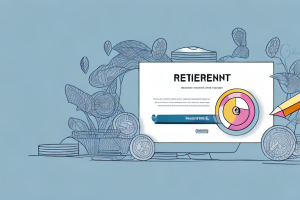Retirement income planning is a critical aspect of financial management that requires careful consideration. It involves assessing the sufficiency of the income available during retirement and considering various factors that can impact one’s financial well-being. In this article, we will delve into the subject of $150,000 as a retirement income and explore whether it is a good amount to sustain a comfortable retirement. We will also discuss different sources of retirement income, investment strategies, tax considerations, and other important aspects of retirement planning. By the end of this article, you will have a comprehensive understanding of the key considerations involved in assessing the adequacy of a $150,000 retirement income.
Understanding the Importance of Retirement Income Planning
Retirement income planning is vital because it allows individuals to ensure that they have enough funds to support their desired lifestyle during their retirement years. It involves considering various factors, such as the individual’s expected retirement age, expected lifespan, desired lifestyle choices, healthcare costs, and inflation, among others. By meticulously evaluating these factors, individuals can assess their retirement income needs accurately and make informed decisions about their finances.
One important aspect of retirement income planning is understanding the potential sources of income during retirement. These sources can include Social Security benefits, pensions, investments, and personal savings. By understanding the different sources and their potential income streams, individuals can create a comprehensive retirement income plan that maximizes their financial security.
Another crucial consideration in retirement income planning is the potential risks and uncertainties that individuals may face during their retirement years. These risks can include market volatility, unexpected healthcare expenses, and changes in personal circumstances. By acknowledging and planning for these risks, individuals can develop strategies to mitigate their impact and ensure a more stable retirement income.
Evaluating the Sufficiency of $150,000 for Retirement
When determining whether $150,000 is a good retirement income, it is crucial to examine individual circumstances and lifestyle expectations. While $150,000 may be sufficient for some individuals, it may fall short for others. Factors such as living expenses, housing costs, and debt obligations can significantly impact one’s retirement income needs. Therefore, it is essential to conduct a thorough analysis of these factors to determine if $150,000 would be adequate to support the desired lifestyle during retirement.
One important factor to consider when evaluating the sufficiency of $150,000 for retirement is healthcare expenses. As individuals age, healthcare costs tend to increase, and it is crucial to account for these expenses when planning for retirement. Medical insurance premiums, prescription medications, and potential long-term care needs can all contribute to higher healthcare expenses in retirement.
Another factor to take into account is inflation. Over time, the cost of living tends to rise due to inflation. This means that the purchasing power of $150,000 may decrease over the course of retirement. It is important to consider the potential impact of inflation on the ability to maintain the desired lifestyle and cover necessary expenses throughout retirement.
Factors to Consider When Determining a Good Retirement Income
Several factors should be considered when determining a good retirement income. These factors include basic living expenses, healthcare costs, travel and leisure activities, social security benefits, anticipated inflation rates, investment returns, and potential for unexpected expenses. By analyzing each of these factors in detail, individuals can gain a clearer understanding of their retirement income requirements and make appropriate adjustments to their financial plans.
One additional factor to consider when determining a good retirement income is the individual’s desired lifestyle during retirement. Some individuals may have specific goals or aspirations for their retirement years, such as pursuing hobbies, traveling extensively, or living in a certain location. These lifestyle choices can have a significant impact on the amount of income needed to support them. It is important for individuals to carefully consider their desired lifestyle and factor it into their retirement income calculations to ensure they have enough funds to live the retirement they envision.
Exploring the Average Retirement Expenses and Lifestyle Expectations
Retirement expenses can vary significantly based on an individual’s lifestyle expectations. While some individuals may have modest retirement goals, others may aspire to enjoy extensive travel, pursue expensive hobbies, or maintain a luxurious lifestyle. It is essential to explore and anticipate these expenses accurately to determine if $150,000 would be sufficient to meet the desired retirement lifestyle.
Analyzing the Impact of Inflation on Retirement Income
Inflation is a crucial factor that can significantly impact the purchasing power of retirement income. As prices of goods and services increase over time, the value of a fixed income decreases. Therefore, it is crucial to consider the potential impact of inflation on a $150,000 retirement income. This analysis is crucial to ensure that the income remains adequate to meet future expenses despite rising prices.
Assessing the Health Care Costs in Retirement and Its Financial Implications
Healthcare costs in retirement can be substantial and can significantly impact retirement income. Considering the rising cost of healthcare services, it is crucial to evaluate the potential expenses related to medical treatments, long-term care, prescription drugs, and insurance premiums. By assessing these costs, individuals can determine if $150,000 would be sufficient to cover their healthcare needs during retirement.
The Role of Social Security Benefits in Supplementing Retirement Income
When assessing the adequacy of a $150,000 retirement income, it is crucial to consider the role of social security benefits. Social security benefits can help supplement retirement income and alleviate some financial burdens. By understanding the eligibility criteria and estimating the expected social security benefits, individuals can better evaluate the sufficiency of a $150,000 retirement income and make necessary adjustments to their financial plans.
Exploring Different Sources of Retirement Income Beyond a Fixed Amount
A retirement income of $150,000 does not necessarily have to come from a single source. Individuals can explore various income streams, such as pensions, annuities, investments, rental properties, and part-time work, to supplement their fixed retirement income. By diversifying income sources, individuals can enhance their financial security and ensure a more comfortable retirement.
Strategies to Maximize and Stretch a $150,000 Retirement Income
There are several strategies individuals can employ to maximize and stretch a $150,000 retirement income. These strategies include careful budgeting, expense control, debt reduction, downsizing, tax-efficient investment strategies, and having contingency plans in place. By implementing these strategies, individuals can make the most of their retirement income and achieve a higher level of financial stability and well-being.
Diversifying Investments for a Secure and Sustainable Retirement Income
Investments play a critical role in ensuring a secure and sustainable retirement income. By diversifying investment portfolios and considering different asset classes such as stocks, bonds, real estate, and mutual funds, individuals can reduce risk and enhance potential returns. This diversification strategy is essential to protect the $150,000 retirement income from market volatility and inflationary pressures.
Building a Nest Egg: Saving and Investing Strategies for a Comfortable Retirement
Building a substantial retirement nest egg is crucial to support a comfortable retirement. By adopting effective saving and investing strategies, individuals can accumulate wealth and grow their retirement funds. Strategies such as contributing to retirement accounts, taking advantage of employer matches, automating savings, and investing in tax-efficient vehicles can significantly impact the size of the retirement nest egg and contribute to a more financially secure retirement.
The Role of Annuities in Providing Guaranteed Lifetime Income in Retirement
Annuities can play a vital role in providing individuals with guaranteed lifetime income during retirement. By purchasing annuity products, individuals can convert a portion of their retirement savings into a stream of income that will last throughout their lifetime. This guaranteed income can help supplement the $150,000 retirement income and provide individuals with greater peace of mind and financial security.
Balancing Risk and Return: Investment Options for Retirees with $150,000 Income
Retirees with a $150,000 income must strike a balance between risk and return when considering investment options. While higher-risk investments may offer the potential for higher returns, they also bring a higher level of risk. Retirees must carefully assess their risk tolerance and diversify their investments to manage risk effectively while striving for reasonable returns that can sustain their retirement income.
Tax Considerations and Strategies for Optimizing Retirement Income with $150,000
Tax considerations can significantly impact retirement income and should be carefully evaluated when planning for retirement with a $150,000 income. Retirees should explore tax-efficient investment strategies, understand retirement account distribution rules, and consider taking advantage of tax deductions and credits to optimize their retirement income. By considering these tax-related factors, retirees can enhance the value and longevity of their $150,000 retirement income.
Navigating Market Volatility: Managing Investments and Protecting Retirement Income
Market volatility can pose risks to retirement income, especially during economic downturns and financial crises. Retirees with a $150,000 income must adopt strategies to manage investments effectively and protect their retirement nest egg. Techniques such as diversification, periodic rebalancing, and maintaining a long-term perspective can help retirees navigate market volatility and safeguard their retirement income.
Planning for Unexpected Expenses: Emergency Funds and Contingency Plans in Retirement
Planning for unexpected expenses is crucial to protect a $150,000 retirement income from financial shocks. Retirees should establish emergency funds to cover unforeseen expenses, such as medical emergencies or home repairs. Furthermore, having contingency plans and appropriate insurance coverage can provide financial protection and ensure that unexpected expenses do not significantly disrupt retirement income.
Exploring Part-Time Work Opportunities to Supplement $150,000 Retirement Income
For individuals with a $150,000 retirement income that may not be sufficient to sustain their desired lifestyle, exploring part-time work opportunities can be an effective solution. Part-time work during retirement can not only supplement income but also provide individuals with a sense of purpose and engagement. By carefully considering part-time work options, individuals can enhance their financial security and maintain a fulfilling retirement lifestyle.
Estate Planning: Ensuring Financial Security and Legacy Preservation in Retirement
Estate planning is a crucial aspect of retirement preparation that should not be overlooked. By effectively planning one’s estate, individuals can ensure financial security for themselves and their loved ones. Estate planning involves creating wills, designating beneficiaries, establishing trusts, and considering charitable giving. By properly executing these estate planning strategies, individuals can preserve their $150,000 retirement income for future generations and leave a lasting legacy.
Seeking Professional Advice: Consulting Financial Planners for Optimal Retirement Strategies
Given the complexities involved in retirement income planning, seeking professional advice from experienced financial planners can be highly beneficial. Financial planners can provide personalized guidance, assess individual circumstances, and develop optimal retirement strategies tailored to specific needs. By leveraging the expertise of financial planners, individuals can make well-informed decisions and enhance the likelihood of achieving a secure and prosperous retirement with a $150,000 income.
In conclusion, the adequacy of a $150,000 retirement income depends on various individual factors, lifestyle expectations, and financial goals. It is essential to conduct a thorough analysis of retirement income needs, consider the impact of inflation and healthcare costs, and explore different income sources and investment strategies. By carefully considering these factors, seeking professional advice, and implementing appropriate retirement planning strategies, individuals can maximize the potential of their $150,000 retirement income and achieve a comfortable and secure retirement.



